After a year of temporary housing, Lakewood’s Tent City residents fear homelessness again
Listen-

-
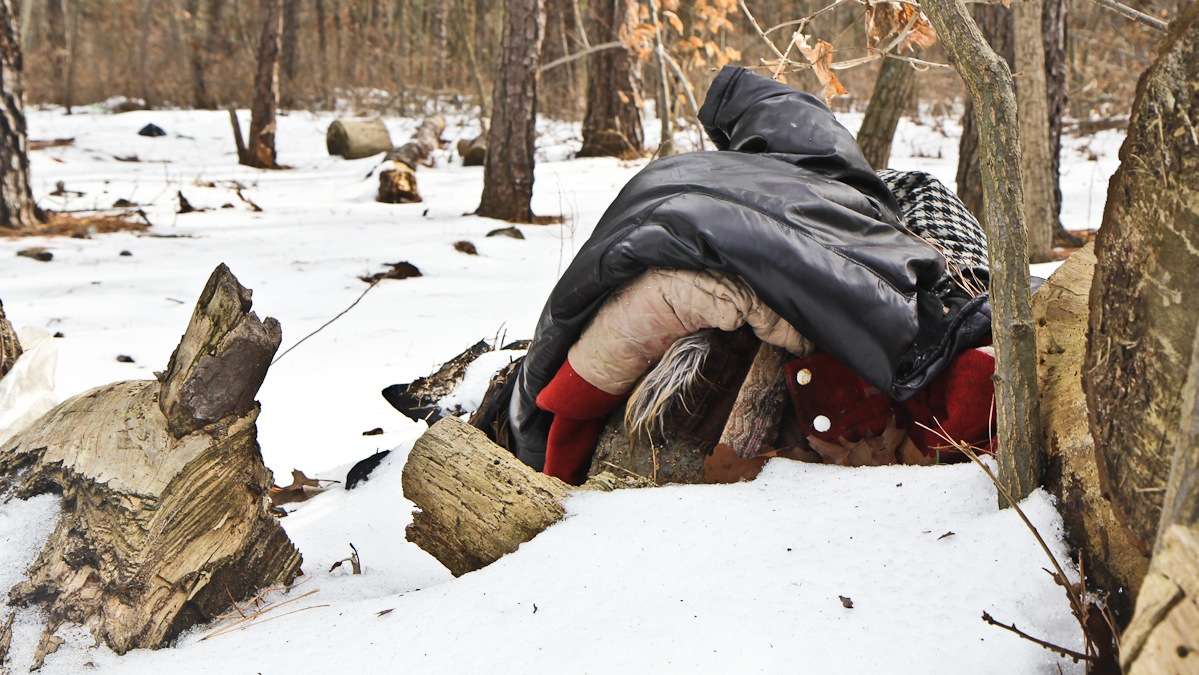
-

-

-

-
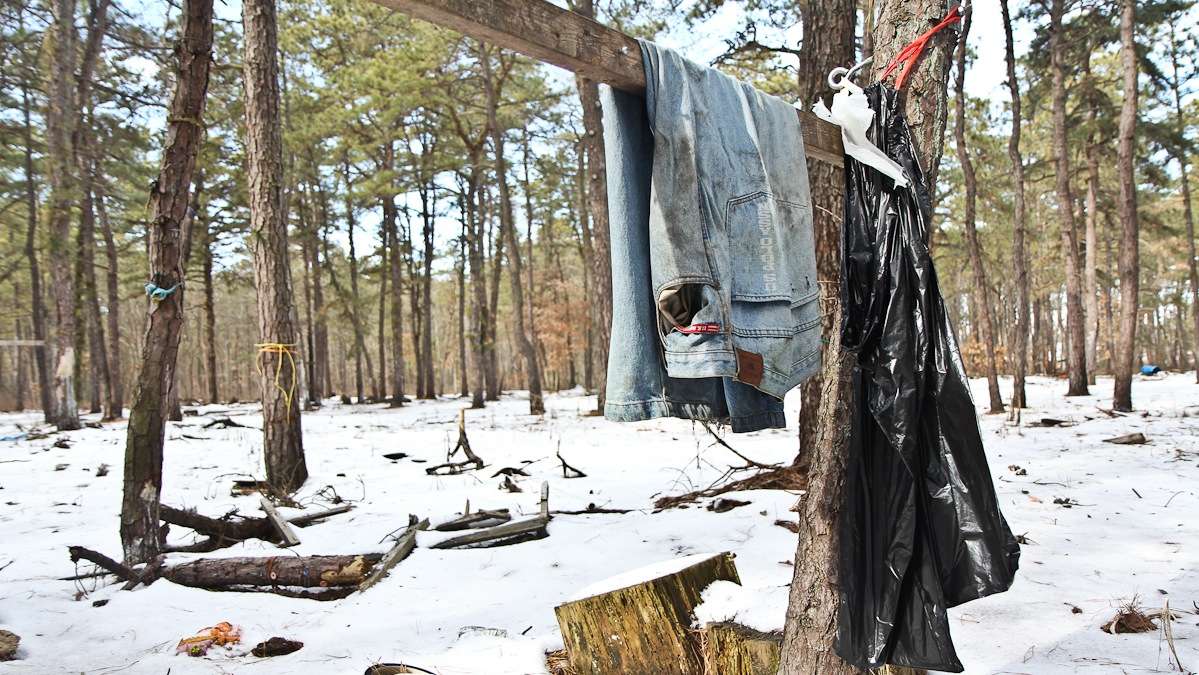
-

-
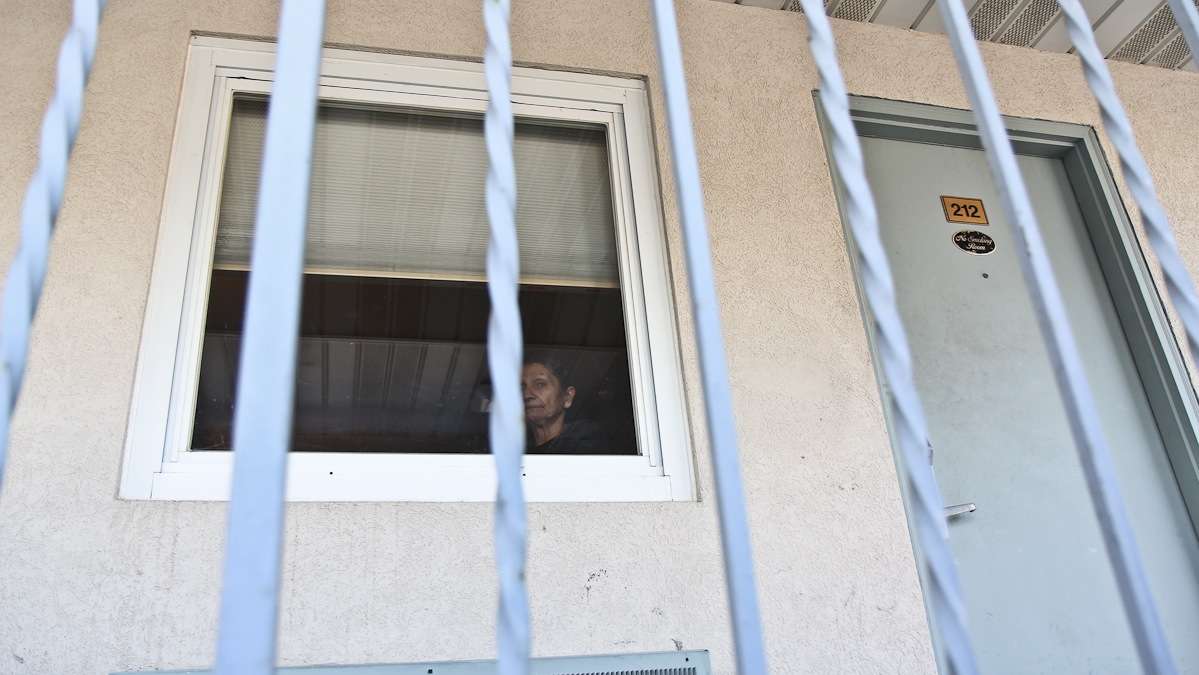
-
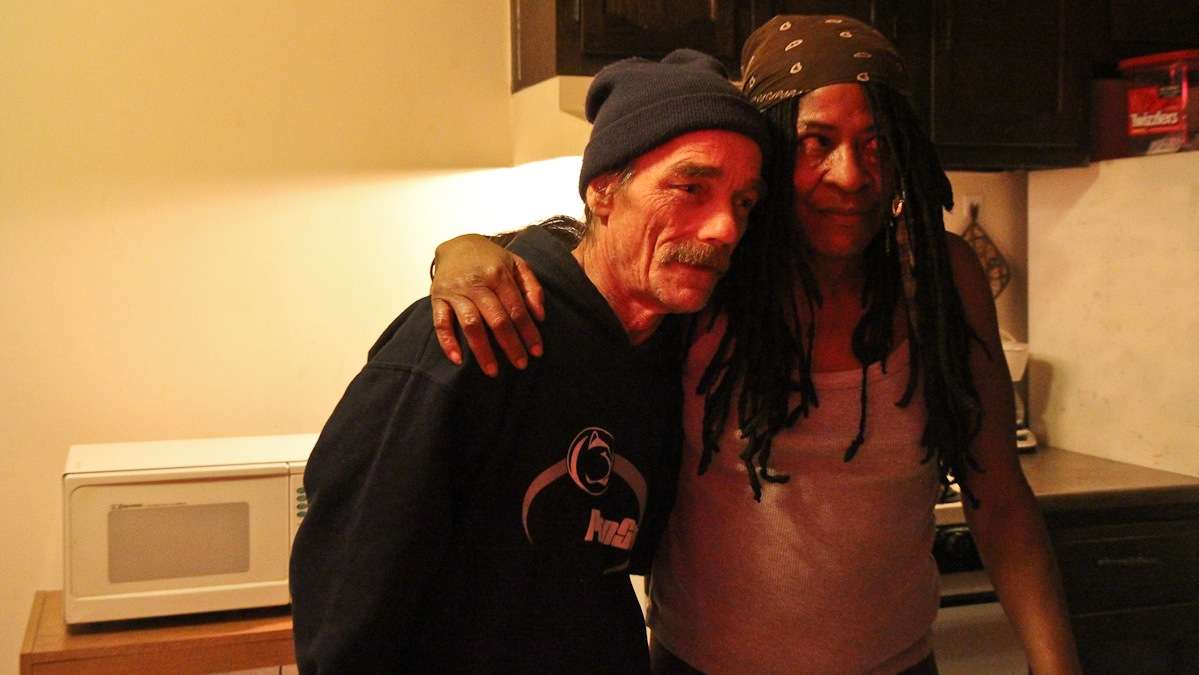
Steve Hamburger and Vera Tims met in Lakewood, New Jersey's Tent City (Kimberly Paynter/WHYY)
The homeless encampment in Lakewood Township known as Tent City grabbed headlines last summer when it closed down after acting as a refuge for displaced people in central New Jersey for years.
Perhaps more remarkable was that Lakewood officials reached an agreement in court to pay Tent City residents — either a lump sum or, for many, a year’s worth of rental assistance — before they demolished the camp.
But with that money running out, many former Tent City residents are in danger of becoming homeless again. And they don’t have the communal campsite as an option anymore.
“It was low-income housing. A lot of these people were single individuals that couldn’t earn enough money to afford the cost of living in the area. And that’s a big problem,” said Minister Steve Brigham, the former de facto leader of Tent City.
Brigham is an ordained minister, but he doesn’t have a formal congregation, unless you count the Tent City residents who used to attend the daily mass he held here. (He goes by “Minister Steve” among former Tent City residents.)
Since the site closed down in July, Brigham has been living out of his van. He says he’s homeless by choice because it gives him more time and money to spend working on issues that mean something to him, like homelessness.
On a recent visit to the site, Brigham said Tent City gave homeless people a community without the worry of paying rent or staying current on a mortgage. “The chapel was here, the kitchen was over here. We had a shower over there. We had some grills over here where people would cook outside,” he said. “It was a town setting.”
But a few years ago, Tent City began to grow. At its peak, more than 100 people called it home. And locals started to take notice.
 Minister Steve Brigham, who is homeless by choice, points out the area in Tent City where he led prayer services. (Kimberly Paynter/WHYY)
Minister Steve Brigham, who is homeless by choice, points out the area in Tent City where he led prayer services. (Kimberly Paynter/WHYY)
“There was a lot of crime coming out of there. And there were fires. And people were getting killed either by fire or by frost,” said Lakewood Township Mayor Albert Akerman.
With complaints from Lakewood residents piling up, Ackerman and the Township Committee paid nearly $200,000 to relocate the more than 70 people living in the camp. That number spikes when you include legal fees and costs for services like trash pickup and portable toilets.
A few residents took a lump sum payment, which one man used to buy a car. Most people took a year’s worth of rental assistance to pay for a room at a local hotel or apartment complex.
Brigham says it was a good deal, but it came with a catch.
“A lot of these camps are closed with no alternatives for the people, no real options. So we got a year’s worth of housing for the people,” he said. “But then again, that’s coming to a close. And now things are worse than they were before because there’s no Tent City to go to.”
Residents feeling the pressure
Vera Tims landed in Tent City after a stint in jail. She was thankful for Lakewood’s temporary assistance, but she’s concerned that it’s about to elapse.
“All of us that’s been put up, we’re all going to court and getting ready to be put out again,” she said. “So what the heck?”
These days, Tims is living in a one-bedroom apartment with her boyfriend, Steve Hamburger. Tims has sciatica, and Hamburger is participating in a local work program but doesn’t have a steady job. Their assistance ran out in mid-January, and they’re in danger of being evicted because they can’t scrape together money for rent or utilities.
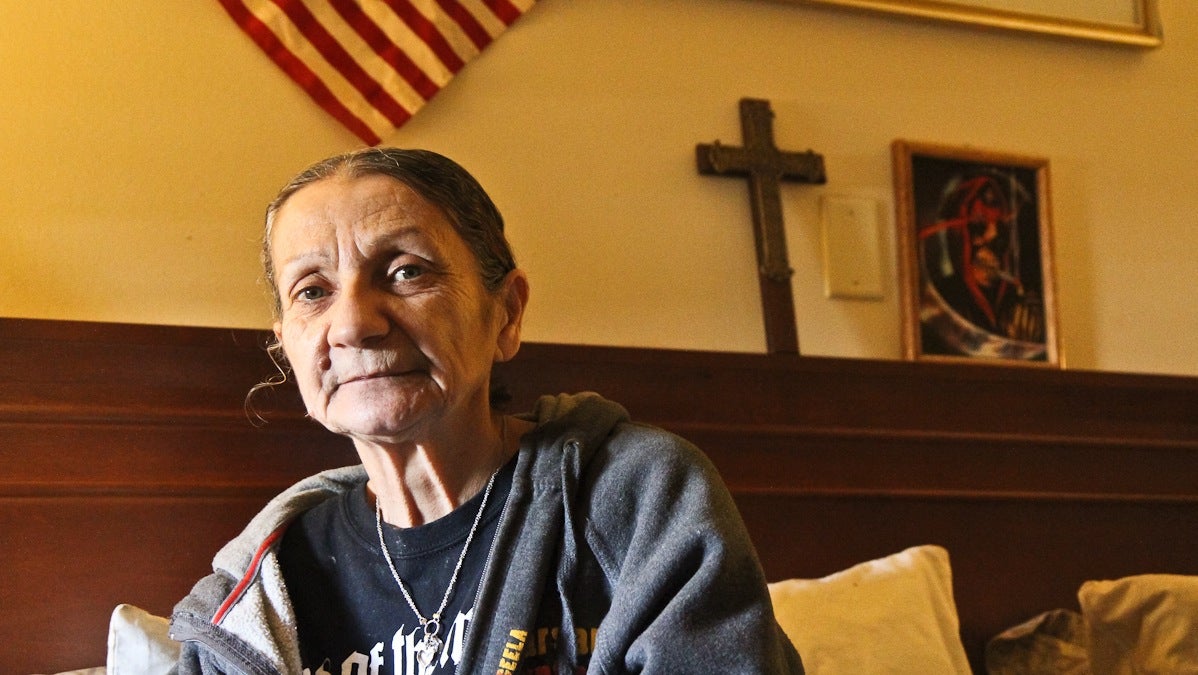 Francis Lebron now lives in a motel thanks to Lakewood’s assistance. She says she misses the community of Tent City. (Kimberly Paynter/WHYY)
Francis Lebron now lives in a motel thanks to Lakewood’s assistance. She says she misses the community of Tent City. (Kimberly Paynter/WHYY)
Tims said the new place was a welcome alternative to living outdoors … for a while, at least.
“Just to be able to turn a light on, that felt good. And to cook — well we cooked over there, but we have our own kitchen. It just felt good. It really did,” she said. “But now I’m feeling bad again, because we don’t know what’s going to happen.”
Another couple from Tent City living in the same apartment complex told WHYY they are also in the process of being evicted.
One woman, Francis Lebron, is staying in a nearby motel until her year runs out in May. After that, she isn’t sure where she’ll go next.
“Good question,” Lebron said, “I hope they might be able to put me someplace else.”
And some former Tent City residents are still living in the woods across Lakewood Township, just not in such a large group.
Hamburger, Tims’ boyfriend, says after sleeping on a bench in Asbury Park for 10 years before coming to Tent City, he wishes it were still an option.
“I wouldn’t mind going back to [Tent City] right now, because I ain’t looking forward to the bench again,” Hamburger said.
Was it enough?
The milestone has some people asking whether Lakewood made the right decision in shutting down Tent City and if it did enough to house residents for a year.
Mayor Akerman says Lakewood has largely moved on from the Tent City, which means it isn’t likely to shell out more aid. He readily acknowledges that the year of temporary housing assistance didn’t wipe out homelessness in Lakewood, but says it was a generous response to a problem that the township never saw as its responsibility in the first place.
“It’s not a solution to the long-term problem, but municipalities don’t deal with homelessness. It’s a federal issue. And we do our best as a municipality, a lot more than any other municipality that I know,” Akerman said.
“If everybody chipped in as much as we chip in, there wouldn’t be a homeless person in the United States of America. I guarantee you that.”
Mike McNeil, the executive director of NJ Steps, a Lakewood-based nonprofit that helps people in poverty, agrees that the aid was generous, especially because many of the Tent City residents who received it came from places outside of Lakewood.
“I was there when somebody actually took a taxicab from Belmar. And they weren’t homeless at the time,” McNeil said, “but because of the court order, they registered. And when the time came they were eligible for the housing.”
NJ Steps helped find housing for many of the people who left Tent City last year.
According to McNeil the process worked, but it lacked follow-through.
“You can’t put everybody in a house without some type of wraparound service. You just can’t do it. So what has happened is that once we put them in, who’s responsible?”
The township may have gotten rid of Tent City, but the camp’s former residents haven’t gone anywhere.
WHYY is your source for fact-based, in-depth journalism and information. As a nonprofit organization, we rely on financial support from readers like you. Please give today.




